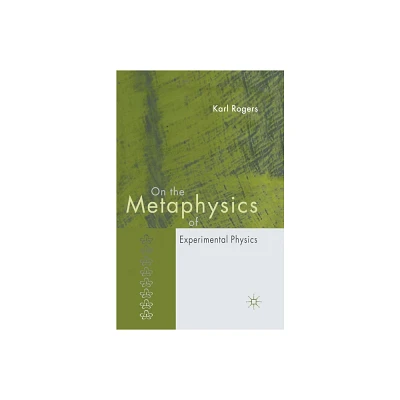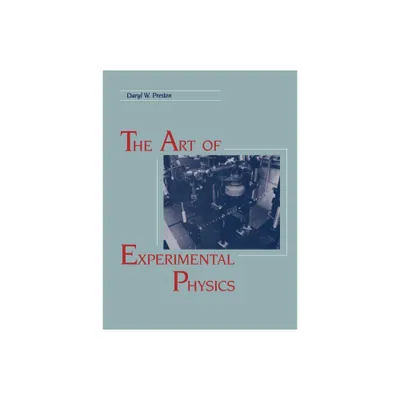Home
Experimental Physics: Principles and Practice for the Laboratory
Loading Inventory...
Barnes and Noble
Experimental Physics: Principles and Practice for the Laboratory
Current price: $66.99


Barnes and Noble
Experimental Physics: Principles and Practice for the Laboratory
Current price: $66.99
Loading Inventory...
Size: OS
*Product Information may vary - to confirm product availability, pricing, and additional information please contact Barnes and Noble
The student's companion website and the instructor manual can be accessed here.
This textbook provides the knowledge and skills needed for thorough understanding of the most important methods and ways of thinking in experimental physics. The reader learns to design, assemble, and debug apparatus, to use it to take meaningful data, and to think carefully about the story told by the data.
Key Features:
Efficiently helps students grow into independent experimentalists through a combination of structured yet thought-provoking and challenging exercises, student-designed experiments, and guided but open-ended exploration.
Provides solid coverage of fundamental background information, explained clearly for undergraduates, such as ground loops, optical alignment techniques, scientific communication, and data acquisition using LabVIEW, Python, or Arduino.
Features carefully designed lab experiences to teach fundamentals, including analog electronics and low noise measurements, digital electronics, microcontrollers, FPGAs, computer interfacing, optics, vacuum techniques, and particle detection methods.
Offers a broad range of advanced experiments for each major area of physics, from condensed matter to particle physics. Also provides clear guidance for student development of projects not included here.
Provides a detailed Instructor’s Manual for every lab, so that the instructor can confidently teach labs outside their own research area. The manual can be accessed here.
This textbook provides the knowledge and skills needed for thorough understanding of the most important methods and ways of thinking in experimental physics. The reader learns to design, assemble, and debug apparatus, to use it to take meaningful data, and to think carefully about the story told by the data.
Key Features:
Efficiently helps students grow into independent experimentalists through a combination of structured yet thought-provoking and challenging exercises, student-designed experiments, and guided but open-ended exploration.
Provides solid coverage of fundamental background information, explained clearly for undergraduates, such as ground loops, optical alignment techniques, scientific communication, and data acquisition using LabVIEW, Python, or Arduino.
Features carefully designed lab experiences to teach fundamentals, including analog electronics and low noise measurements, digital electronics, microcontrollers, FPGAs, computer interfacing, optics, vacuum techniques, and particle detection methods.
Offers a broad range of advanced experiments for each major area of physics, from condensed matter to particle physics. Also provides clear guidance for student development of projects not included here.
Provides a detailed Instructor’s Manual for every lab, so that the instructor can confidently teach labs outside their own research area. The manual can be accessed here.


















